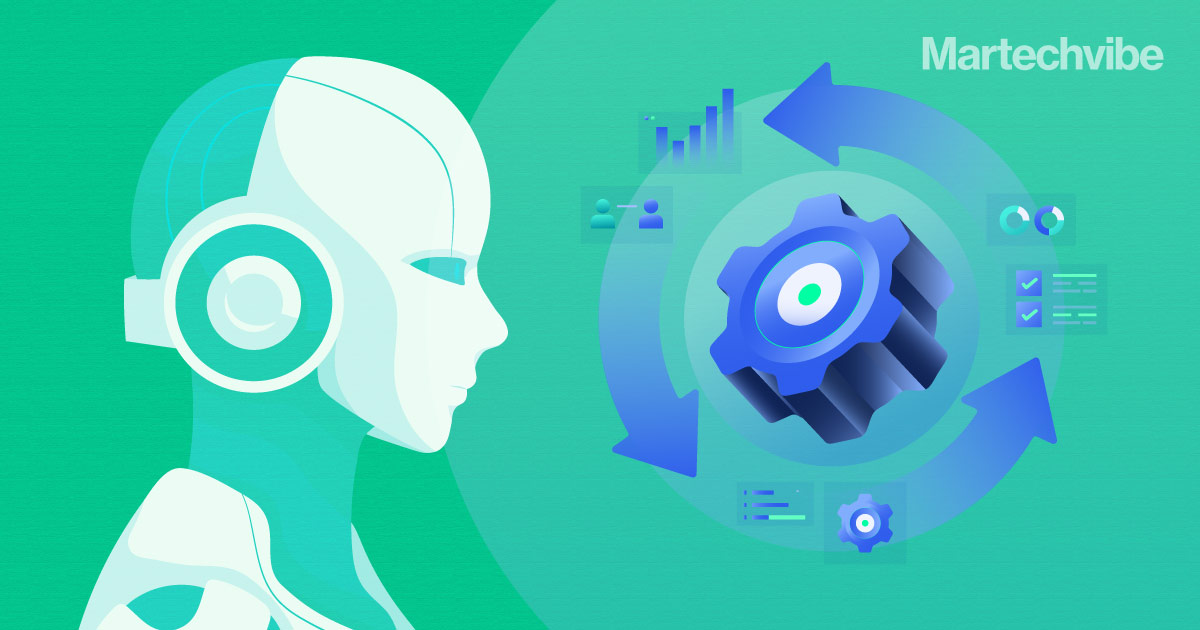Why Empathy will Outperform Automation
As automation plateaus, empathy emerges as marketing's superpower – the differentiator that AI and machines cannot replicate.

Marketing is at a crossroads. On one side, we have unprecedented automation and AI capabilities; on the other, there is growing consumer fatigue with impersonal interactions. The rise of AI-driven campaigns, chatbots, and programmatic ads has delivered efficiency, but often at the cost of human touch. Have we optimised so much that we’ve lost the spark that makes marketing truly resonate?
Research from PwC shows that 59% of consumers feel companies have lost touch with the human element of customer experience. While businesses eagerly adopt AI tools, many are discovering that automated marketing falls flat without empathy and human-centred values. To thrive in the AI age, marketing must evolve to become more, not less, human.
The Automation Overload: Why Efficiency Alone Is Not Enough
Initially, AI promised hyper-efficiency. From algorithmic ad targeting to automated email funnels, many companies jumped on board (87% of marketing teams use automation software). But the pendulum is swinging: consumers increasingly perceive fully automated engagements as generic or even alienating.
What’s missing? It’s the human element—empathy, warmth, understanding. According to Harvard Business Review, businesses that prioritise empathy and human-centred approaches significantly outperform those that don’t. This is true for innovation, customer satisfaction, and financial results.
In short, efficiency cannot compensate for emotional disconnection, and an overreliance on automation can erode customer trust and loyalty.
ALSO READ: AI, Autonomy, and the Next Chapter in Brand Experience
Empathy: The New Marketing Superpower in the AI Era
As automation plateaus, empathy emerges as marketing’s superpower – the differentiator that machines cannot replicate. Consumers are craving authentic, relatable brands in a world of ubiquitous technology.
Empathy in marketing means deeply understanding customer emotions and needs, and reflecting that understanding in every interaction. Research from Forrester shows that even in B2B settings, a positive emotional response to brand communication correlates directly with higher revenue and customer retention.
Moreover, Nielsen research demonstrates that emotional ads generate significantly higher engagement. Consumers who connect emotionally to an ad are up to 70% more likely to purchase, a powerful testament that campaigns speaking to the heart outperform those targeting the wallet.
In the AI age, empathy isn’t a soft sentiment; it’s a hard strategy. It builds trust, fosters community, and differentiates brands in a crowded digital marketplace. Brands that are transparent about their values and show genuine care can humanise even the most high-tech campaigns, turning AI from a cold tool into a conduit for connection.
ALSO READ: AI-Augmented Open-Ends for Marketing, CX and Beyond
Authenticity in Automation: Blending AI with Human-Centred Values
How can AI-driven marketing be anything but impersonal? The key idea is that AI and empathy are not mutually exclusive. Forward-thinking marketers use AI to enhance empathy at scale, not replace it.
1. Empathetic AI in Action
According to McKinsey’s research on next-generation operating models, leading companies combine advanced AI capabilities with human-centric design principles to create more emotionally intelligent customer experiences. Their approach ensures that marketing automation amplifies content while discovering and expressing a brand’s authentic voice, aligning campaigns with genuine purpose and emotional storytelling.
Such frameworks show that automation can be guided by empathy principles—for instance, using AI-driven sentiment analysis to fine-tune messaging tone in real time or employing design thinking’s empathy maps to inform AI-generated content. The result is marketing that is efficient and emotionally intelligent.
2. Humanising Customer Journeys with AI
Brands are leveraging AI for personalisation in ways that feel deeply personal rather than creepy by focusing on “moments that matter.” For example, AI can analyse customer sentiment at key touchpoints and trigger appropriate, empathetic responses. If frustration is detected in a support chat, an AI assistant might automatically escalate to a human or offer a heartfelt apology.
3. Case Study: Empathy-First AI Service
Ama&Me provides an exemplary model of weaving empathy into an AI-driven service by offering conversational support for new and expectant parents. The platform uses AI designed with compassion at its core, setting it apart by its deliberate design for emotional support during vulnerable moments. When parents message with concerns about anxiety, stress, or the challenges of early parenthood, they receive responses that acknowledge their emotions first before providing guidance.
The service combines trusted information from reliable sources with warm, reassuring language, recognising that users need emotional support as much as practical advice. Ama&Me illustrates that empathetic AI isn’t just possible for those interested in innovative tech—it can become a core differentiator, especially in industries where customers seek information and emotional reassurance.
ALSO READ: Is Sentient Marketing The Future of AI-Driven Customer Connection?
Integrating Empathy-Driven Strategies: A Playbook for Founders
Knowing empathy matters is one thing; implementing it in AI-driven marketing is another. Here are practical strategies for founders and entrepreneurs:
1. Start with Deep Customer Understanding
Leverage tools like empathy mapping and social listening before deploying any AI. Truly get to know your customers’ fears, desires, and values. AI analytics can help sift through data, but spend time personally engaging with customers or reviewing qualitative feedback to ensure your automated campaigns address actual human pain points and feelings.
2. Humanise Your Brand Voice (Even in Automation)
Configure AI content tools or chatbots with a tone that reflects warmth, understanding, and authenticity. Establish AI content guidelines that include emotional intelligence, ensuring the brand’s automated emails or AI-written posts sound human and caring. Share stories, use relatable language, and admit imperfections when appropriate.
3. Blend AI Efficiency with Human Touchpoints
Identify where automation adds value and where a human should step in. Automate routine inquiries or personalised product recommendations, but have actual team members engage in community forums or surprise top customers with personal calls. Research from Accenture on human-machine collaboration shows that technology can set the stage, but the people who bring the empathetic touch make an experience memorable.
4. Measure What Matters (Empathy KPIs)
Consider new metrics beyond traditional marketing measurements: customer satisfaction scores, sentiment analysis of feedback, retention rates, or qualitative testimonials that mention feeling “heard” or “valued.” According to the Qualtrics XM Institute, companies tracking these emotional experience metrics show significantly higher customer lifetime value. Some innovators are tracking the sentiment of AI interactions or running A/B tests for “empathetic language vs. standard language” to see the impact on engagement.
5. Ethical and Transparent Use of AI
Be transparent when using AI in customer interactions and ensure you use data ethically. Show that your automation is on their side – e.g., an AI recommendation system that genuinely tries to help, not just upsell. Allow customers to give feedback to AI systems and use that feedback to improve the humanity of the responses.
ALSO READ: 5 AI Use Cases Every Customer Service Leader Should Be Scaling
A New Era – Human-Centered Marketing in an AI World
“The end of marketing as we know it” isn’t the end of marketing—it’s the end of a purely transactional, automated, one-size-fits-all approach. A new marketing era is unfolding – one where success is measured not just by how many eyeballs an algorithm can capture, but by how many hearts and minds a brand can genuinely engage.
Empathy, authenticity, and emotional connection are practical drivers of loyalty and growth in a time of endless choices and information overload. Brands that weave empathy into their use of AI will outshine those that don’t. This is not about rejecting technology, but about humanising it.
The end of marketing as we know it is the beginning of something better – marketing that feels, listens, and cares. In the age of AI, that is how brands will win.









































































































